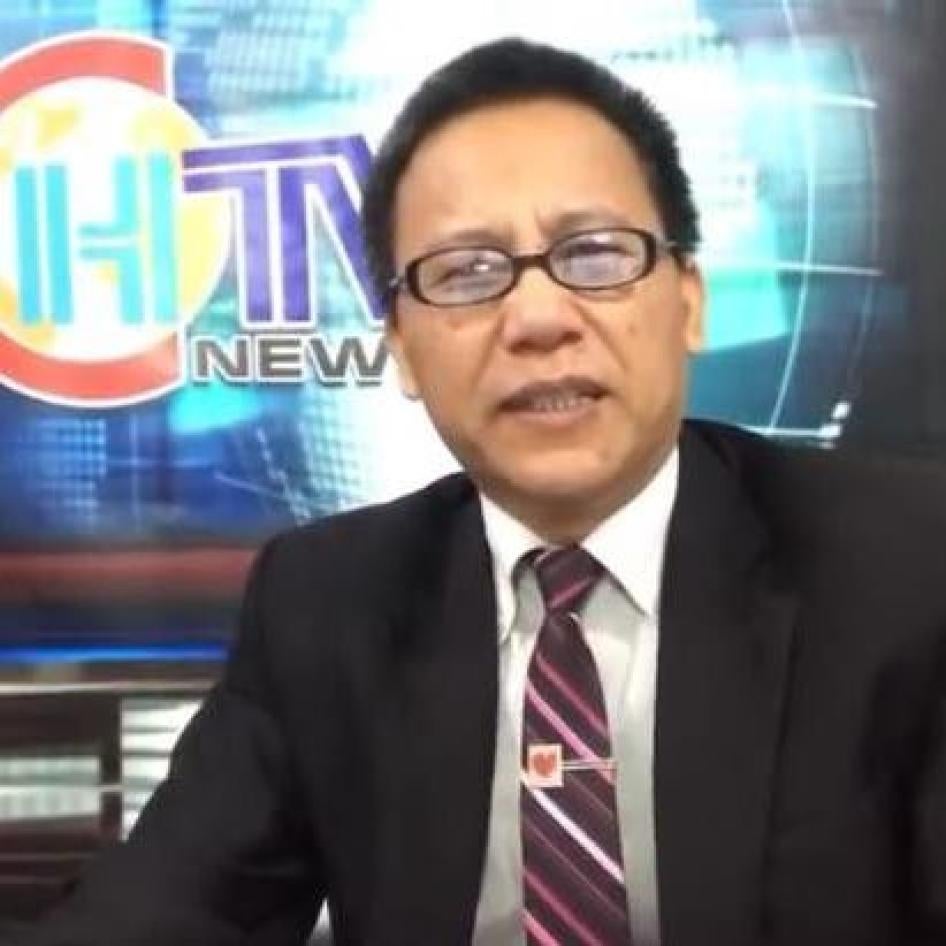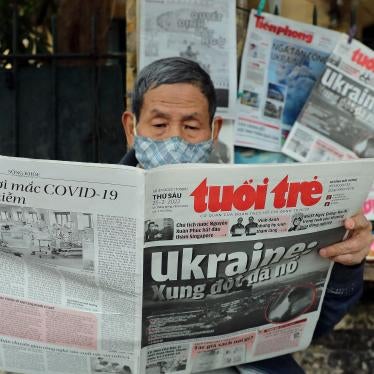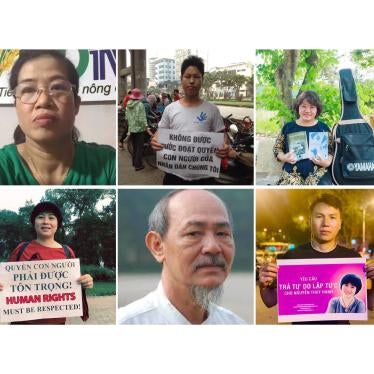Update: On March 23, 2022, a court in Hanoi sentenced Le Van Dung to five years in prison and five years of probation after his release.
(Bangkok) – The Vietnamese authorities should immediately drop the politically motivated charges against the social commentator Le Van Dung and release him, Human Rights Watch said today.
The police arrested Le Van Dung on June 30, 2021, in Hanoi and charged him with conducting propaganda against the state for his videos and posts on Facebook and YouTube. A Hanoi court is scheduled to hear his case on March 23, 2022. If convicted, he faces up to 12 years in prison.
“Le Van Dung is one of more than 60 people the Vietnamese authorities are prosecuting or imprisoning simply for criticizing the government,” said Phil Robertson, deputy Asia director at Human Rights Watch. “The Vietnamese penal code provision on propaganda seeks to intimidate people with the threat to shut up or be locked up.”
Le Van Dung, also known as Le Dung Vova, 51, is a construction engineer who has participated in many protests since 2011, including demanding environmental action and criticizing China. After witnessing government crackdowns against peaceful protesters, he began to take part in pro-democracy activism and human rights advocacy.
He traveled to sites of forced land confiscation to film the local authorities’ violence against farmers, such as at Vu Ban district, Nam Dinh province in May 2012. He joined other activists to independently investigate the massive die-off of marine creatures along the central coast of Vietnam in April 2016 caused by Formosa Ha Tinh Steel, a company owned by Taiwan’s Formosa Plastics Group, which dumped toxic waste into the sea. Le Van Dung has also participated in campaigns to provide assistance to victims of natural disasters in Vietnam.
In 2017, Le Van Dung and his fellow activists created a YouTube channel called Chan Hung TV (To reinvigorate [the country]). They used this channel, as well as the livestream function on Facebook, to comment on various social and political issues. They also interviewed and provided advice to farmers facing land confiscation and people who suffered government persecution or injustice, such as the mother of a death-row inmate, Ho Duy Hai. Members of Chan Hung TV also provided information about basic rights and law to their viewers, and distributed free copies of Vietnam’s Constitution.
In February 2021, Le Van Dung attempted to run as an independent candidate for the national assembly in the May 2021 elections, but local authorities arranged to have him disqualified. On May 25, two days after the elections, police went to Le Van Dung’s house in Hanoi to arrest him, but he had gone into hiding. On May 28, police issued an arrest warrant for him. In response, he wrote on his Facebook page: “If I am imprisoned for speaking my conscience, I would still speak up. Even when I know that speaking the truth would bring loss to myself and my family, including my wife and my children. We will face discrimination resulting from our differences in awareness.”
Police arrested him on June 30 at a relative’s house in Hanoi and charged him with propaganda against the state. In July, police charged his relative, Nguyen Van Son, with “hiding a criminal” under article 389 of the penal code.
That month, the police newspaper The People’s Police accused Le Van Dung of:
distorting the policies and guidelines of the Party and the State; distorting and insulting the private life of leaders; inciting protests and disrupting security and order; propagandizing and promoting ‘civil society,’ pluralism and a multi-party system; providing and training skills for opposing activities and methods to carry out ‘color revolution’ in order to overthrow the regime in Vietnam.
The article accused Le Van Dung and his fellow activists of “creating thousands of video clips” about sensitive issues that caused public debates in Vietnam, such as a zoning plan for Son Tra in Da Nang or the Cai Lay BOT toll booth in Tien Giang province. The article also condemned him and others for “providing legal assistance” to farmers at the Dong Tam commune, the site of a longstanding land conflict.
“Vietnamese authorities persist in treating any sort of criticism of the government as a grave threat to be prosecuted with long prison terms,” Robertson said. “International donors and trade partners of Vietnam should press Hanoi to listen to its critics instead of persecuting them.”









